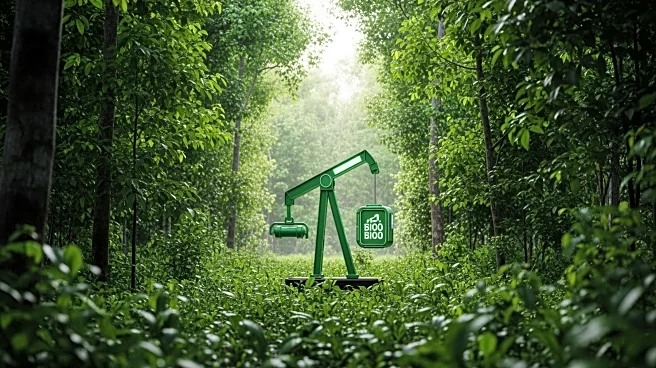What's Happening?
Brazil, in collaboration with India, Italy, and Japan, has announced a pledge to quadruple global sustainable fuel use by 2035, focusing on biofuels. This initiative is set to be a highlight at the upcoming COP30 climate summit in Belém, Brazil. The pledge aims
to accelerate the transport sector's shift away from fossil fuels, but it raises concerns about potential environmental impacts. Historically, biofuels expansion has led to deforestation, as land is cleared for crops like oil palm, soy, sugarcane, and corn. The International Energy Agency warns that doubling biofuels should not involve increased land expansion, a crucial detail missing from the pledge. Past experiences, such as the EU's biofuels targets, resulted in significant deforestation and CO2 emissions, highlighting the need for careful policy implementation.
Why It's Important?
The pledge to increase biofuels use is significant as it represents a major effort to reduce reliance on fossil fuels, a key factor in climate change mitigation. However, the environmental risks associated with biofuels, such as deforestation and increased CO2 emissions, could undermine these efforts. Brazil's decision to lift the moratorium on soybean expansion further exacerbates these concerns, potentially leading to increased deforestation in the Amazon. The pledge's success depends on implementing safeguards to prevent land expansion, ensuring that biofuels do not contribute to environmental degradation. The outcome of this initiative could influence global climate policy and the future of sustainable energy.
What's Next?
As Brazil hosts COP30, it has the opportunity to shape global discussions on sustainable energy and climate justice. The country must address the environmental concerns associated with biofuels and implement policies to prevent land expansion. Stakeholders, including environmental groups and policymakers, are likely to scrutinize the pledge's impact on deforestation and CO2 emissions. Brazil's actions at COP30 could set a precedent for other nations, influencing international climate agreements and sustainable energy strategies.
Beyond the Headlines
The pledge highlights the complex relationship between energy production and environmental conservation. While biofuels offer a renewable energy source, their production can conflict with land use priorities, such as food security and biodiversity preservation. The debate underscores the need for integrated approaches that balance energy needs with environmental protection. Brazil's role in this global conversation is crucial, as its policies could drive significant changes in how biofuels are produced and utilized worldwide.














